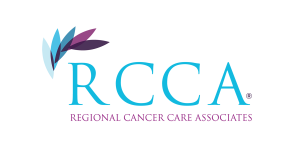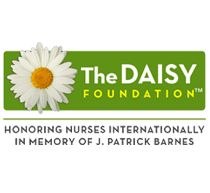Types of Blood Cancer
Hematologists treat both benign (non-cancerous) and malignant (cancerous) disorders of the blood and blood-forming tissues. Benign blood disorders include anemia, hemochromatosis, thrombocytopenia, bleeding disorders, and blood clotting disorders. Meanwhile, common malignant blood disorders include:
Leukemia
Leukemia begins in blood-forming tissues in bone marrow and throughout the lymphatic system. It causes blood cells to grow uncontrollably, affecting healthy blood cells and diminishing the number of red and white blood cells, as well as platelets. Acute and chronic lymphocytic leukemia and acute and chronic myelogenous leukemia are the most common types.
Lymphoma
Lymphoma is a blood cancer that begins in the white blood cells of the immune system. Types of lymphoma include Hodgkin, non-Hodgkin, high-grade non-Hodgkin, and small lymphocytic lymphoma. Within non-Hodgkin lymphoma, there are two subtypes — mature B-cell neoplasms and mature T-cell neoplasms.
Multiple Myeloma
Multiple myeloma develops in the plasma cells of bone marrow. These white blood cells are integral to the body’s efforts to fight infections. Multiple myeloma is characterized by the growth and spread of abnormal plasma cells and may diminish red blood cell counts and damage bones, the kidneys, and the immune system.
Myeloid Disorders
Also called white blood cell disorders, myeloid disorders occur when the body produces an unusual amount of white blood cells.
Myeloproliferative Neoplasms (MPNs)
Myeloproliferative neoplasms occur when the body generates too many blood cells. MPNs are often chronic.
What Are Common Blood Cancer Symptoms?
Each malignant blood disorder is characterized by specific symptoms. Some symptoms, however, are common in many types of blood cancers. These include:
Fatigue and Weakness
Several blood cancers cause a drop in red blood cell count. Red blood cells contain hemoglobin, a protein that helps transport oxygen and carbon dioxide throughout the body. If the body does not get enough oxygen, the tissues and muscles lack needed energy, and fatigue and weakness can result. This tiredness persists despite getting adequate sleep. Fatigue and weakness render some people too weary to engage in daily activities, and concurrent headaches and faintness may occur.
Fever and Chills
People with malignant blood disorders may have frequent episodes of fever. Chills may also be common with hematologic conditions.
Night Sweats
Night sweats are bouts of excessive sweating that occur while sleeping. Patients may wake up to find their sheets and clothes drenched in sweat and may have trouble sleeping. Individuals with leukemia or lymphoma might experience night sweats.
Shortness of Breath
Shortness of breath is another potential symptom of leukemia. Patients may feel breathless even when sitting or lying down, or feel lightheaded. Shortness of breath may contribute to fatigue and weakness.
Unexplained Bleeding and Bruising
Some malignant blood disorders cause excessive bleeding and bruising. For example, these symptoms are common in leukemia.
Repeated Infections
Low white blood cell counts impair the immune system’s ability to fight infections. These infections, aside from being more persistent, may also be more severe. Coughing, sore throat, and other flu-like symptoms might occur.
Mouth ulcers – one or more painful sores on the inner lips, gums, tongue, roof of the mouth, or throat – may occur with leukemia or lymphoma, or due to treatment of those diseases.
Rashes and Itchiness
Rashes can result from low platelet levels. Two types of rashes frequently caused by blood disorders are petechiae, small red blood spots that appear under the skin because of broken blood vessels, and purpura, purple rashes that develop when blood collects under the skin. Itching or burning might occur with lymphoma, but the reason for this is not fully understood.
Loss of Appetite
Many blood cancers can impair appetite. Alternatively, other symptoms of the cancer or its treatment, such as nausea or constipation, can affect appetite.
The severity of appetite loss varies; some patients eat more modestly less than before while others do not wish to eat at all. More severe instances of appetite loss may result in cachexia, a “wasting” syndrome marked by loss of skeletal muscle and fat and extreme fatigue.
Swelling and Lumps
Some blood cancers may cause abnormal white blood cells to accumulate in the lymph glands. Lumps and swelling typically occur on the neck, armpits, and groin areas. These growths may ache at times. Swelling and lumps also might develop inside the body, pressing on organs and causing pain.
Unexplained Weight Loss
Blood cancers may impact the body’s metabolism by decreasing fat and muscle mass. A loss of appetite may also cause weight loss. Weight loss that does not coincide with recent changes in diet and exercise could signal a cancer of the blood – although this is only one of many potential causes.
Bone or Joint Pain
Malignant blood disorders that originate in the bone marrow may cause damage and discomfort to the bones and joints. Leukemia and myeloma are two conditions where bone and joint pain are common.
Similarly, if abnormal blood cells accumulate in the spleen, a person may experience abdominal pain.
Other Symptoms of Blood Cancers and Disorders
Other signs and symptoms that may signal blood cancer or another hematologic condition include:
- Chest pain
- Cardiac concerns (irregular heartbeat, heart murmur)
- Constipation, nausea, and vomiting
- Pale or yellowing skin
- Cognitive symptoms (confusion, brain fog)
- Cold hands and feet
- Bloody gums
- Bloody urine and stool
Of course, many of these symptoms can arise from a wide variety of conditions. However, they should be brought to the attention of a physician.
Comprehensive Treatment for Hematologic Conditions at RCCA
The medical oncologists and hematologists of RCCA offer patients with blood cancers a broad range of cutting-edge, evidence-based treatments, including:
Chemotherapy
Chemotherapy involves use of powerful medications to attack and kill cancer cells or prevent them from spreading. When tumors are present, chemotherapy can reduce their size, which may also alleviate pain and other symptoms. Chemotherapy may be administered orally or intravenously.
Targeted therapy
Like chemotherapy, targeted therapy uses drugs to attack cancer cells or disrupt their function and reproduction. However, these medications specifically affect malignant cells – typically by binding to receptors on their surface — while leaving healthy cells intact.
Immunotherapy
Immunotherapy enhances the immune system to empower it to attack cancer cells. Types of immunotherapy include vaccines, monoclonal antibodies, T-cell therapy, and checkpoint inhibitors.
Infusion Therapy
Infusion therapy occurs when patients receive medication intravenously. Various therapies involve infusion therapy, such as chemotherapy and immunotherapy.
Blood and Marrow Transplantation
Blood and marrow transplantation involves injecting new white or red blood cells or platelets into the bloodstream to replace lost stem cells in the bone marrow. Stem-cell transplantation may complement other treatments.
Radiation Therapy
Radiation therapy uses powerful, high-energy rays to kill cancer cells or impede their growth.
Clinical Trials
RCCA offers clinical trials for several blood disorders, including leukemia and multiple myeloma.
Find Compassionate Care for Blood Disorders at RCCA
RCCA has 22 community-based locations throughout New Jersey, Connecticut, Maryland, and the Washington, DC area. RCCA oncologists and hematologists see more than 26,000 new patients each year and provide care to more than 245,000 established patients, collaborating closely with their patients’ other physicians.
Contact RCCA to learn more about blood cancer symptoms and treatment for benign and malignant blood disorders, or request an appointment at a nearby location.








